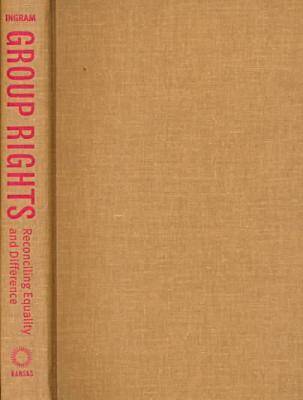As people of diverse origins seek their rights as citizens in the great American melting pot, the differences between us are sometimes celebrated but more often cursed. White Americans, too often forgetful of their own immigrant backgrounds, question whether initiatives like affirmative action that extend privileges to minorities violate the principle of equal treatment under the law.In this provocative book, David Ingram brings a variety of current social dilemmas together in a mutually illuminating way. He examines the concept of legal equality in a multiracial society by considering issues such as self-governance for Native Americans, the rights of immigrants, affirmative action, racial redistricting, and multicultural curricular reform. He also tackles the problem of social injustice in a global setting by assessing the negative impact of free trade policies on the rights of groups to subsistence, self-determination, and cultural integrity.
Ingram steeps his presentation in theoretical discussions that investigate group versus individual rights, oppressed groups and social injustice, and the legitimacy of racial and cultural distinctions. He explores the legal treatment of difference to show how democratic institutions unintentionally perpetuate racial inequality and to determine how those institutions might be better structured to protect minorities.
Taking in a broad sweep of economics, politics, and anthropology, Ingram examines social ideals in the light of historical facts in order to lend a concrete perspective to possibilities for reform. He makes a persuasive case for redressing wrongs of the past in a way that adheres to the principle of legal equality -- arguingthat initiatives like affirmative action are not reverse discrimination but satisfy the constitutional guarantee of equal protection -- and he suggests that libertarians need to acknowledge duties as much as they do rights.
Group Rights is a new primer on the meaning of American citizenship. It makes a vital contribution to critical social theory, bringing complex philosophical concepts into sharp focus and elaborating the histories by which moral and political principles are interpreted. A challenging sourcebook for students and concerned citizens, it clarifies these important issues and points the way toward a political reconciliation between equality and difference in the new global society.
- ISBN10 0700610065
- ISBN13 9780700610068
- Publish Date 1 March 2000
- Publish Status Out of Print
- Out of Print 28 July 2011
- Publish Country US
- Imprint University Press of Kansas
- Format Hardcover
- Pages 336
- Language English
